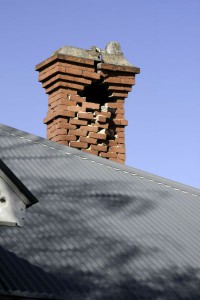The Appalling Truth about Spalling
Did you know your chimney could sweat? Did you know that this process is actually very harmful to your chimney? Well now that it has been brought up, you must learn all the facts. When the bricks of your chimney sweat, spalling can start to occur. If you feel like this could be happening with your chimney, call the professionals at Billy Sweet Chimney Sweep.
What is chimney spalling and how is it caused?
Spalling is what happens when the bricks or stones on your masonry chimney start to come off in flakes or start to go missing because of water penetration. One of the first signs is when you find random bricks on the ground or on your roof. Often times the main cause of spalling is when the water absorbed in the bricks from precipitation freezes and thaws. This can be worsened by the condensation of flue gases in liners that are not the right size, or gaps and cracks in the interior mortar joints. Also, spalling is made more prominent when extra water enters the interior by way of the chimney chase. Softer types of bricks are more likely to have moisture penetration, but are often used over harder types of bricks because they are more cost-friendly.
The chimney will be one of the first places that will show that it has damage since it is constantly exposed to the elements. The spalling will start with the top portions but once one part of the chimney starts to spall the whole inside has already been damaged. These bricks must be replaced since they are permanently damaged.
How can you prevent spalling?
There is no complete way to protect your chimney from water damage, but there are a few things that you can do to help. First, you need to have your chimney waterproofed. Your chimney technician can do that on any dry day after they sweep. The layer of sealant will need about six hours to dry so it is important to plan ahead. If you live somewhere where it rains often, you might look into having a second coat applied. Chimney caps are also another great way to help keep water out, as well as animals and leaves, but must be properly installed to be safe.

